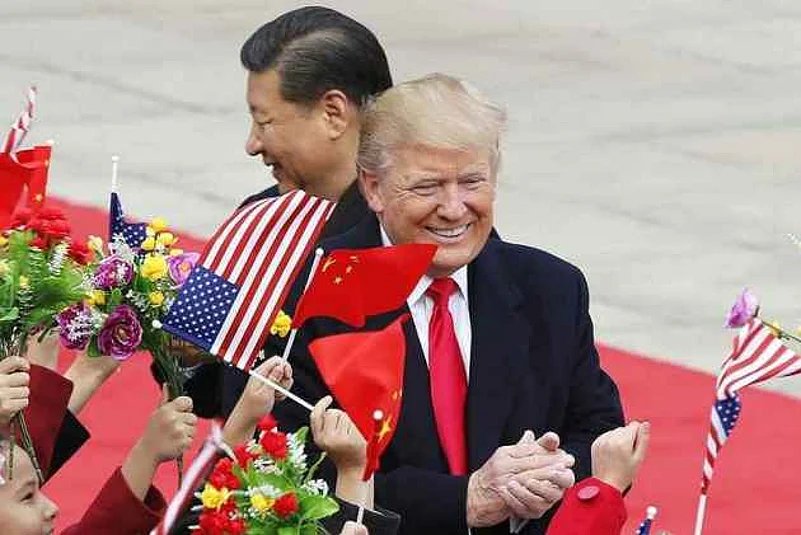The US has added 28 Chinese entities to an export blacklist, citing their role in Beijing's repression of Muslim minorities in Xinjiang, just days before high-level trade talks were slated to resume in Washington.
Targets of the action by the Commerce Department on Monday include video-surveillance and facial-recognition giants Hangzhou Hikvision Digital Technology, Megvii Technology Inc. and SenseTime Group Ltd, Efe news reported.
The Department's decision to put the firms to its "entity list" alongside telecommunications giant Huawei TechnologiesCo., which was added in May, means suppliers will be barred from providing technology that originates in the US to the Chinese firms without a license.
The newly identified entities "have been implicated in human rights violations and abuses in the implementation of China's campaign of repression, mass arbitrary detention, and high-technology surveillance against Uighurs, Kazakhs, and other members of Muslim minority groups" in Xinjiang region, the Department said in a statement.
A spokesman said the move was unrelated to the trade negotiations.
Western scholars estimate more than one million Turkic Uighurs and other Muslim minorities have been arbitrarily detained in China's Xinjiang region in the past few years.
The US will also add the Xinjiang Public Security Bureau and 19 subordinate entities to the entity list, along with Chinese firms Dahua Technology Co., IFLYTEK, Xiamen Meiya Pico Information Co., Yitu Technologies and Yixin Science & Technology Co., the Department statement added.
The new policy will take effect later this week.
Deputy-level US and Chinese officials began in Washington on Monday, followed by talks between Trump's top negotiators, US Trade Representative Robert Lighthizer and Treasury Secretary Steven Mnuchin, and China's top trade envoy, Liu He, beginning Thursday.
Negotiations between the two countries for a sweeping trade deal hit an impasse in early May; while talks have continued, little progress has been made toward an accord, and most observers have narrowed their expectations of what negotiators may be able to achieve.
President Donald Trump, speaking Monday at the White House at a signing ceremony for a trade deal with Japan, said there was "certainly a good possibility" of a big trade deal with China, adding that a partial deal is "unlikely".
The one recent bright spot has been Chinese agricultural purchases. Chinese buyers bought more than 1.5 million metric tonnes of US soybeans in the last week of September alone, according to official data, some of the biggest purchases in more than a year.
In August, China purchased nearly $1.5 billion of total agricultural exports, including $945 million of soybeans, according to a Commerce Department report, the best month since January 2018.
The figures were some of the most encouraging since the US-China trade war got under way.
On October 15, the US is set to raise tariffs to 30 per cent from 25 per cent on nearly $250 billion worth of goods. More tariffs kick in December 15, with 15 per cent levies on $156 billion in Chinese imports, including smartphones and other consumer goods.

























